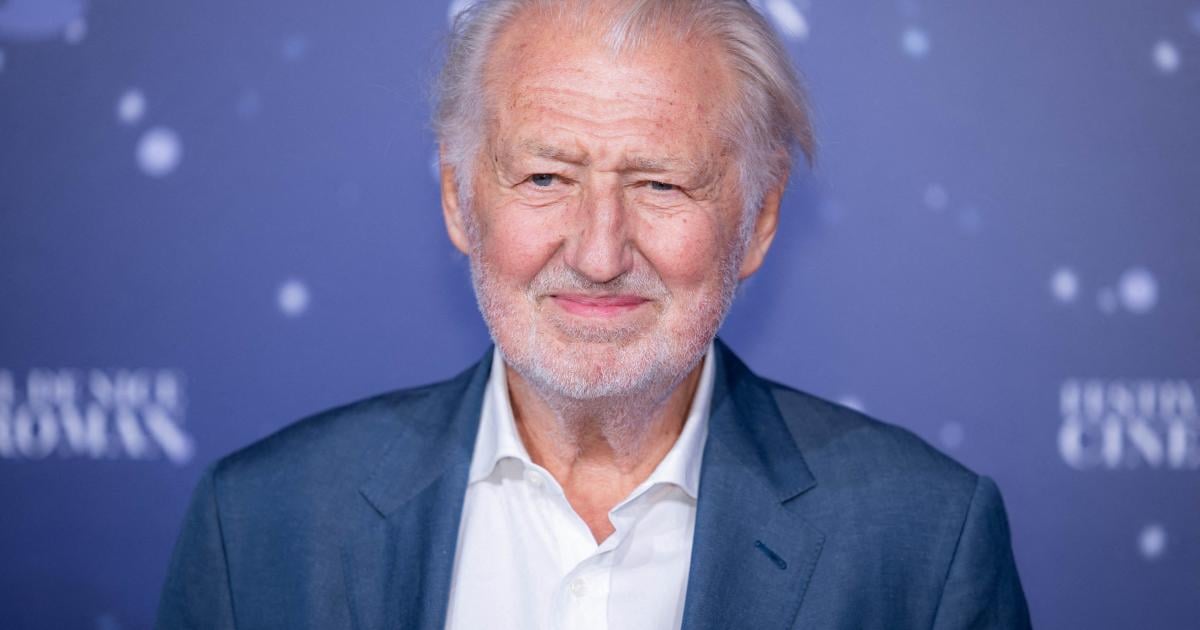
Suggested video What products are in season in April?
Video 1 of 2
This year again, the Top Chef audience was able to rediscover the Hidden Brigade. But this time, it is not Hélène Darroze who is calling the shots but rather Pierre Gagnaire accompanied by culinary critic François Régis Gaudry. The leader guides and pushes candidates to give the best of themselves. The last one who manages to reach the end of all the battles will have the honor of joining the official competition in Pierre Gagnaire’s new brigade.
A real challenge for the participants as well as for the chef who particularly appreciates this role of mentor as he explains in an interview given to TV 7 days : “It amused me to reach out to those who were ousted from the competition. It’s a very instructive exercise to try to get them back in the saddle. It’s a real cooking competition, with all the randomness that entails. There is always an element of uncertainty, which means that you can be very good one day and swept away the next, sometimes for more or less valid reasons”.
What the starred chef particularly appreciates is giving candidates a second chance and not stopping at failure. A leitmotif that directly reminds him of his personal story: “I lost everything in 1996, I never forget it and I don’t fail to remember it either, because this failure was also, and still is, my strength”. But then what happened that year for the chef to experience such an earthquake in his career? We will explain everything to you.
Guest last year in the new Top Chef podcast presented by Stéphane Rotenberg, Pierre Gagnaire spoke about his journey in the kitchen. If today the multi-starred chef, known throughout the world, has become a true reference in French gastronomy, his love for cooking actually came late.
Originally, Pierre Gagnaire did not want to be behind the stove; it was his father, himself a restaurateur, who put him on this path. So, originally, cooking was far from being a profession of passion for him: “Having not chosen this profession at the start, I was forced to enter that world, so it was mainly suffering at the start, I had no pleasure”. However, if cooking was not his primary vocation, the chef was able to climb the ladder despite the difficulties he encountered during his career. In 1996 in particular, the chef experienced his biggest setbacks.
In 1996, it has now been 3 years since the chef won his third star in the Michelin Guide. If his cuisine impresses, financial difficulties and a lack of customers will get the better of his restaurant in Saint-Etienne, which he ultimately closes. Indeed, if this ascension was for him “the beginning of a great notoriety”he also explains having forgotten “that cooking is not just an art, it is a whole business”.
Reality has thus caught up with Pierre Gagnaire. Cooking, although essential, was not the only criterion to take into account in his success, as he confided at the time in Paris Match :”I imagine that the sheer strength of my work and the quality of my cooking will be enough… A gigantic mistake! When you’re a restaurateur, you don’t just cook. You have all the hats: business manager, director, programmer… You have to take care of everything: the glassware, the cutlery, the flowers, the tablecloths. I, then inhabited by a kind of madness, I want to go quickly, far, I want to place my work in the era. From a job that was imposed on me, I want to make a small work of art. It’s therapy. I want to be a creator. But soon the business was no longer profitable at all and the banks demanded repayment of their loans. I will have to make concessions, comply with market expectations… at the risk of losing my third star.”
But the chef is tenacious and it is unthinkable for him to lose a star, which could tarnish the reputation of the restaurant: “I refuse these compromises, so I put myself into personal liquidation and filed for bankruptcy in 1996. I no longer have a penny, no friend, nothing!”
In fact, he explains in the podcast that he made this decision a bit on a whim. It was with the future in mind that the chef decided to throw everything into disarray: “It’s me who realizes that I’m going to the wall and who decides with my wife at the time to stop everything. It was me who screwed myself up. There aren’t many big decisions you make in life, but this one is important. I projected myself five, ten years later and I said to myself, ‘but you’re going to do anything to survive, you want to do what you didn’t want to do when you were 25, so I did everything to fart”.
The chef ends up concluding in Paris Match that fortunately, thanks to a network of relationships, he managed to borrow a little money and create his company. Finally, despite his lack of appetite for cooking at the start of his career, Pierre Gagnaire was able to bounce back by settling in Paris and regaining his three stars in 1998 on rue de Balzac to become a pillar of French gastronomy today. .
As the chef confides: “We must always keep in mind that everything can stop overnight.”
Source:https://www.750g.com/je-n-ai-plus-un-sou-plus-un-ami-plus-rien-pourquoi-pierre-gagnaire-a-du-fermer-l-un-de-ses-restaurants-au-cours-de-sa-carriere-a37248.htm


